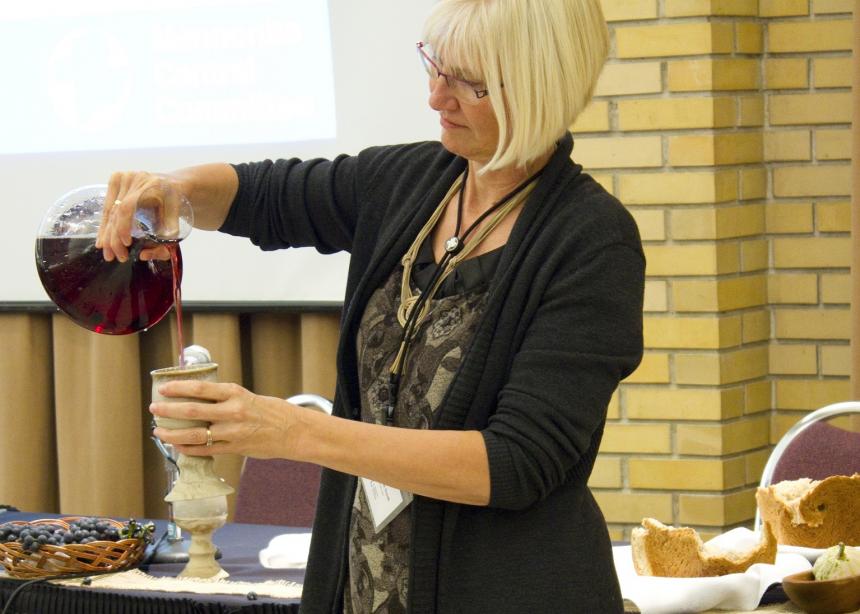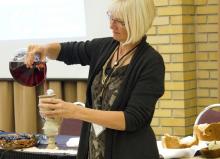Comparing Mennonite Central Committee (MCC) to a big tent, Don Peters, the executive director of MCC Canada, described the organization as “the place where the Anabaptist community works and serves together,” at its annual general meeting in Winnipeg at the end of September 2016.
However, the question on many people’s minds has been, “Can supporters stay under the tent together?” In this metaphorical tent there are many people with different backgrounds, gifts, challenges and perspectives.
MCC was formed 96 years ago as a cautious contract born of necessity between divergent, sometimes conflicting Mennonite groups to help Ukrainian Mennonites caught in the aftermath of the First World War and in the midst of post-revolutionary Russia.
“The magnitude of the suffering and the urgent need for action compelled the groups to collaborate,” Peters quoted from Mennonite Central Committee in Canada: A History by Esther Epp-Tiessen.
In this way, these churches who make up MCC were and are like a stalk of wheat, Mary Anne and Jon Isaak said during a worship session. They asked participants to strip kernels of wheat from the stalk, grind them in a mortar and pestle and contribute the flour to other ingredients to make bread.
“If we’re separate from each other, we do not serve our purpose to nourish and sustain one another,” Mary Anne said, referencing Romans 14 that participants used as the basis for a Bible study on Sept. 23.
Although MCC has historically been an organization around which different groups have come together to nourish and sustain others, both the church and MCC are experiencing shifts due to ideological and theological conflicts which threaten both institutions in their present form.
Peters cited MCC’s participation in interfaith dialogue, its work in Palestine and Israel, and the ongoing conversation surrounding inclusion in the church of members who are in committed same-sex relationships as issues which “have the potential to fracture the Anabaptist body in Canada and, potentially, to erode support for MCC.”
But “the reasons for MCC’s coming together still apply today,” Peters said, calling on leaders and members of these groups to put aside their differences for the greater good of humanity. “We want a commitment (from constituent churches) that the needs out there are so great, they compel us to work together to address them,” he added.
At the close of the day, participants were invited to share a message either for MCC or the churches regarding “big tent thinking.”
Several participants shared messages to the churches that make up MCC’s constituent base to embrace the diversity within. “We can work together with differences, and our diversity can help us see things we wouldn’t see,” said MCC Alberta board member Kris Peters.
Other participants called on the churches to persevere in their work with MCC and to recognize MCC is not meant to be a faith leader or to mediate issues of theology, but to continue to carry out its relief, development and peace work.




Comments
The big tent metaphor usually favours those looking for change. Should MCC NOT move to a more inclusive policy regarding same sex relationships, whatever the reason, will we who support a more inclusive policy still be willing to support MCC??
Add new comment
Canadian Mennonite invites comments and encourages constructive discussion about our content. Actual full names (first and last) are required. Comments are moderated and may be edited. They will not appear online until approved and will be posted during business hours. Some comments may be reproduced in print.